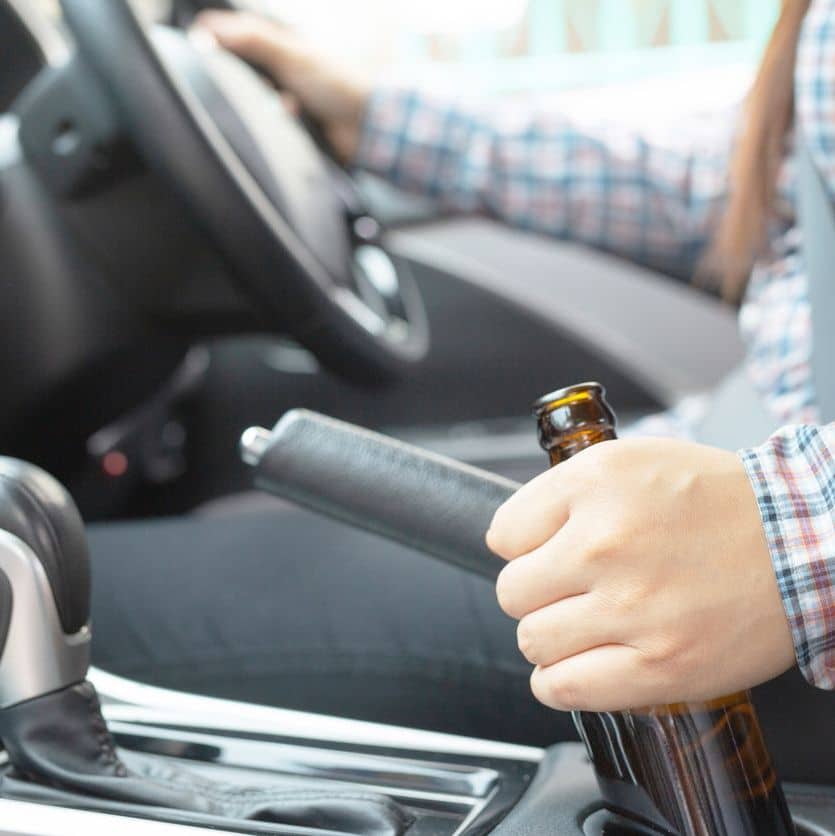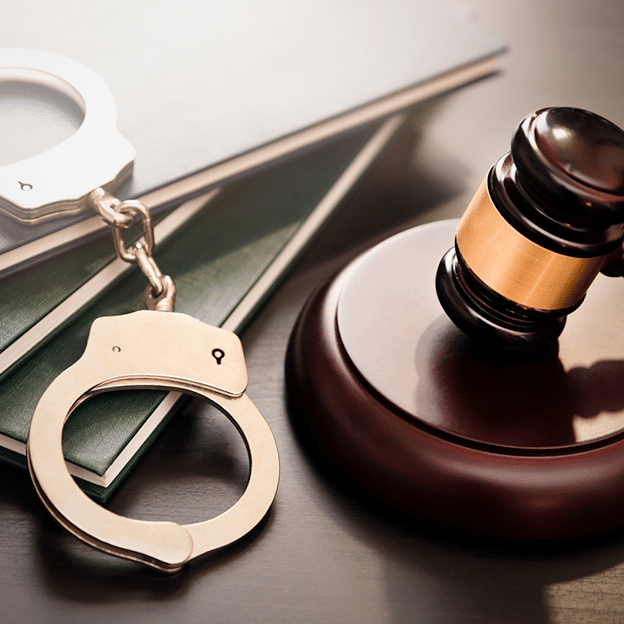No one likes people who drive impaired, and that’s why the state of Indiana punishes this crime harshly. Operating a motor vehicle while intoxicated in Indiana is a severe offense that carries harsh consequences. Jail time is possible, and the long-term effects of an Operating A Motor Vehicle While Intoxicated (OWI) conviction are damaging to your future.
You need a proven operating vehicle while an impaired lawyer in Indiana to fight your charge. The criminal defense lawyers at Gemma & Karimi are ex-prosecutors and have achieved many not guilty verdicts and case dismissals for drunk driving cases. Call our office immediately at (317) 602-5970 for a complimentary consultation about your driving while impaired charge. We will review your drunk driving charge and explain your legal options.
Understanding Operating a Motor Vehicle While Intoxicated (OWI) in Indiana
The laws governing OWI in Indiana are stated in Indiana Code Title 9, Article 30, Chapter 5. Being convicted of drunk driving with a motor vehicle usually means jail, fines, court fees, probation, and community service. You face more severe penalties if you have aa prior conviction.
The impact of an OWI conviction doesn’t stop with the sentence. You will have a criminal record and will fail most employment background checks. A drunk driving conviction may cause you to lose your professional license, such as a commercial driver’s license (CDL).
Contacting our experienced drunk driving charge attorneys dramatically enhances the odds of receiving a better resolution to your impaired driving case.


Facing criminal charges in Indianapolis?
Call our Indiana Criminal Defense attorney at (317) 676-4747 or fill out our online contact form today to schedule a free consultation!
How Alcohol Affects Driving Ability
Alcohol has a significant effect on one’s ability to drive by affecting many cognitive and physical functions:
- Reaction time: Alcohol reduces your brain’s ability to process information, making it much harder to react quickly while driving, such as a car slamming on the brakes before you.
- Coordination: Alcohol damages your motor skills temporarily. Braking, steering, and accelerating are less precise as alcohol affects your nervous system.
- Judgment: Alcohol affects your decisions. Drivers are more likely to be impulsive and take risks, such as speeding, running red lights, or tailgating. Alcohol reduces your sense of caution.
- Vision: Alcohol affects your eyesight, reduces your field of vision, and makes it more challenging to judge driving distances.
- Concentration: Focusing only on driving is vital to safety, but alcohol affects the ability to concentrate. Your mind will wander, and multitasking becomes difficult.
The alcohol level in your blood is measured by blood alcohol concentration (BAC). A BAC of .08 g/dL or higher is illegal in Indiana and means you are operating while intoxicated. Even a beer or two can affect your driving ability, and the police have the right to arrest you for drunk driving, even if you are under the legal limit.
Determining “Operation” Under Indiana Law
State law defines operating a motor vehicle while drunk or on drugs, but ‘operating’ does not only mean ‘driving.’ You can be arrested for drunk driving in Indiana if you have physical control of the car. Indiana Code 9-13-2-118 states that a motor vehicle operator is someone who ‘drives or is in physical control of a motor vehicle on a highway.’ But, perhaps you were not in actual physical control?
For example, suppose you’re sitting in your car outside an Indianapolis nightclub after having several mixed drinks, and the keys are in the ignition but the car is not running. You could be arrested for OWI simply for being in actual physical control of the vehicle, even if you weren’t driving.
In court, the judge may consider several factors when determining whether you were in control of the vehicle when drinking alcohol or on drugs, such as whether you were parked, had keys in the ignition, or were awake or asleep.
An experienced OWI defense attorney at Gemma & Karimi will review the arrest circumstances to determine if you were in actual physical control when consuming alcohol or drugs. They may argue that various factors, such as the engine being off and the keys not in the ignition, mean you were not driving under the influence.

Penalties For OWI
Operating a motor vehicle while intoxicated, on drugs, or visibly impaired in Indiana leads to various penalties, depending on your BAC, previous offenses, and whether the drunk driving caused serious bodily injury or death. Penalties are as follows:
First Offense
A first offense for consuming alcohol or drugs while driving is a Class C misdemeanor with a BAC of less than 0.15%. This misdemeanor is punishable by up to 60 days in jail, a maximum $500 fine, and a driver’s license suspension of 30 days to two years.
A first offense with a BAC of 0.15% or higher is a Class A misdemeanor. It is a misdemeanor punishable by up to a year in jail, a maximum $5,000 fine, and a license suspension of up to two years.
Second Offense
A second drunk driving or drugs offense is a Level 6 felony if it occurs within seven years of a previous OWI conviction. You face six months to 2.5 years in prison, with at least five days in jail or 180 hours of community service. The maximum fine is $10,000, and the license suspension is up to two years.
Third Offense
A third OWI offense in Indiana is a Level 6 felony, and the penalty may be higher with aggravating factors, such as a child in the vehicle. Potential penalties are at least 10 days in jail or 240 hours of community service and up to 2.5 years in prison. The fine is up to $10,000, and your license will be suspended for one to 10 years.
Further, if you are a driver deemed a habitual offender with three or more OWI convictions, you may receive three to eight more years in prison.
Felony OWI With Aggravating Circumstances
An OWI involving a driver and a minor under 18 in the vehicle is a Level 6 felony, carries a penalty of six months to 2.5 years in prison, and up to a $10,000 fine.
An OWI with serious bodily injury is a Level 5 felony, with one to six years in prison and a maximum fine of $10,000.
An OWI leading to death or catastrophic injury is a Level 4 felony, with two to 12 years in prison, and a maximum $10,000 fine.
Additional OWI Conviction Consequences
A convicted drunk driver, especially those with a prior conviction, in Indiana, also faces other consequences:
- Paying court costs and fees
- Being designated a habitual sentence offender
- Ordered to attend a victim impact panel
- Ordered to submit to regular urine tests to check for drugs and alcohol
- Probation and community service
Furthermore, an impaired driving conviction with a motor vehicle can trigger long-term consequences. An OWI conviction will appear on criminal background checks, so obtaining or keeping employment is difficult. Your auto insurance premiums will skyrocket, and being accepted to and staying in college can be more challenging.
A driving under the influence conviction leads to harsh consequences, so retain a skilled OWI defense attorney today. In many cases, a qualified criminal defense attorney can reduce or even dismiss the charge. Our Gemma & Karimi drunk driving attorneys have obtained many not-guilty verdicts in cases that went to trial.
Defenses Against Drunk Driving Charges
Defending against an OWI charge involves attacking the state’s evidence or the legality of the drunk driving arrest. Common defenses that Gemma & Karimi, drunk driving attorneys, have employed effectively for first-time offenders and those with a prior conviction include:
- Vehicle Inoperability: This defense holds that the vehicle wasn’t operable during the drunk driving arrest. For instance, perhaps it had a mechanical problem or no fuel.
- Lack of Physical Control: Suppose you were arrested for OWI but weren’t driving. The keys weren’t in the ignition, and you had the seat back reclined. Your attorney may argue that the vehicle was inoperable, so you were not physically in control.
- Reasonable Belief: You had a reasonable belief that you were not operating the motor vehicle. For example, you called for a tow truck and waited in the car.
- Lack of Evidence: The prosecutor may not have sufficient evidence to prove that you were operating the vehicle.
- Breathalyzer Test Issues: These devices must be maintained and calibrated. If they aren’t, BAC results may be inaccurate.
- Implied Consent Violations: State law requires your driver’s license to be suspended for refusing a breath or blood test. However, if the police didn’t explain the consequences clearly, your attorney may contest the suspension.
Another possibility is to challenge a drunk driving stop. The police must have a reasonable suspicion to stop you in your vehicle. If the police stop did not have a valid basis, any evidence gathered afterward, like breathalyzer results, could be deemed inadmissible. For example, if a police officer stopped you solely because you ‘looked suspicious,’ without a clear legal violation, this could violate your Constitutional rights.
Your attorney may also question the Field Sobriety Tests (FSTs). FSTs, like the walk-and-turn or one-leg stand, are used by the police to provide probable cause to arrest a suspected drunk driver. The tests must follow National Highway Traffic Safety Administration (NHTSA) guidelines, and officers must be adequately trained in their use. Your attorney may argue that external circumstances, such as uneven ground, bad lighting, or poor weather, affected your results.
Operating While Intoxicated (OWI) vs. Driving Under the Influence (DUI)
Operating a motor vehicle while intoxicated (OWI) is the term used in Indiana law, while other states often call the crime driving under the influence (DUI). Both terms refer to the criminal offense of driving a motor vehicle while under the influence of alcohol or drugs. You face severe penalties if convicted, whether it’s a DWI, DUI, or OWI.
OWI is the term in Indiana, and the wording – ‘operating’ – means the prosecution has more flexibility to charge you for drunk driving or driving impaired, even if you were not driving at the time.

What to Expect in an OWI Case
Several stages are involved in an operating while intoxicated case in Indiana, from arrest to case resolution. Your criminal defense attorney will be by your side during the entire DWI process:
Arrest and Booking
- Initial Stop: Police stop you for a traffic violation or suspicion of being impaired when operating a vehicle. They’ll likely administer field sobriety tests and a breath test.
- Chemical Test: If arrested, you’ll be asked to take a certified breath, blood, or urine test under Indiana’s implied consent law. Refusing the test means your license is suspended automatically.
- Booking: You’ll be taken to a police station or jail, fingerprinted, photographed, and held until you post bail. For a first OWI offense, you will probably be released in hours, unless there was serious bodily injury or death. Immediate Consequences Of A Suspected DUI
- License Suspension: If your BAC is 0.08% or higher or you refuse the test, the BMV will administratively suspend your license, usually for six months. Your attorney can attend the administrative hearing to contest the automatic suspension.
- Temporary Permit: You might receive a temporary driving permit for 10 to 30 days until the BMV hearing or court date.
BMV Administrative Hearing
- Timing: You have 10 days from the arrest to request a hearing with the BMV to contest the suspension. If you don’t, it takes effect automatically.
- Purpose: This is separate from the criminal case; it’s about your license, not guilt. Your attorney may argue that the breath test was invalid, or the stop was unconstitutional can argue the stop or test was invalid.
- Outcome: If you lose, the suspension stays. If you win your DWI administrative suspension case, driving privileges may be restored, pending trial or other driving while impaired case resolution.
Arraignment
- First Court Appearance: Within a few weeks of arrest, you’ll appear in county court to hear the DWI charges, which are usually Class C misdemeanors for the first time driving while intoxicated.
- Plea: You can enter “guilty,” “not guilty,” or “no contest.” Most people plead “not guilty” initially to explore defenses or negotiate.
- Bail: If still detained, bail is typically $500-$1,000 for a first offense while driving impaired, higher with priors or felonies.
Pre-Trial Phase
- Discovery: Your criminal defense attorney will review police reports, test results, and videos (dashcam/bodycam) to build a robust defense.
- Plea Bargaining: Prosecutors may offer a deal to avoid trial, like reducing the OWI to reckless driving. This is typical for first offenders with no injuries.
- Motions: Your lawyer might file motions to suppress evidence, such as if the breathalyzer was not calibrated, or dismiss the OWI case.
Trial (If No Plea Deal)
- Bench or Jury Trial: You can choose a bench or jury trial. Most OWI cases are bench trials, which are faster and less unpredictable.
- Prosecution’s Burden: They must prove that you operated a vehicle while intoxicated.
- Defense Strategy: Your attorney might challenge test reliability, officer testimony, or the lack of operation of a vehicle at the time of the arrest.
You should rely on the skill and experience of your drunk driving defense attorney to provide the best chances of obtaining a favorable case result. Depending on the circumstances, your attorney may recommend taking the best plea deal offered by the prosecutor.
A typical plea bargain is having the DUI charge reduced to reckless driving. On the other hand, if the prosecution doesn’t offer a favorable plea deal, your attorney may recommend going to trial, if they think they can beat the charge.
Protecting Your Rights After an OWI Arrest
If you are arrested for OWI, there are several things that you could do that could damage your case. Take the following actions to protect your civil rights:
Remain Silent
Under the Fifth Amendment, you’re protected against self-incrimination. You don’t have to answer questions beyond essential identification. Politely say, “I’m exercising my right to remain silent,” and stop talking.
Understand Your Miranda Rights
If you’re in custody and being questioned about being visibly impaired, police must read you your Miranda rights. If they don’t and continue interrogating, your statements might be inadmissible.
Contacting A Criminal Defense Attorney
You have the right to an attorney and should exercise that right immediately if arrested or questioned by the police for drunk driving or being visibly impaired. Your criminal defense attorney will represent your rights and ensure you do not make incriminating statements. Always contact an impaired driving attorney quickly to ensure you don’t do something to damage your case.
Contact a Criminal Defense Lawyer Now
Were you accused of OWI in Indiana? Gemma & Karimi, criminal defense attorneys, are ex-prosecutors and have over 25 years of combined trial experience defending accused drunk drivers. Our law firm has developed an outstanding record of charge reductions, dismissals,and not-guilty verdicts in impaired driving cases. Your future is on the line, and we can help. Contact us at (317) 602-5970 for an immediate, free legal consultation.

Contact Our Firm
Interested in our services? Fill out some info and we will be in touch shortly. We can’t wait to hear from you!
